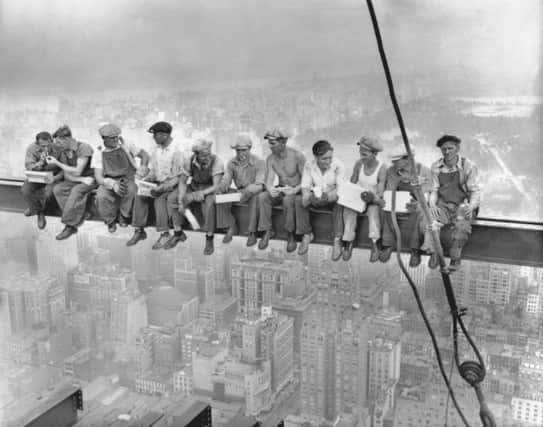Virtual reality therapy can help '˜cure' fear of heights


Psychiatrists in Oxford tested the therapy on 100 volunteers with a serious height phobia who responded to adverts on local radio.
They were split into two groups, one of which underwent six 30-minute virtual reality (VR) sessions over a period of two weeks.
Advertisement
Hide AdAdvertisement
Hide AdPatients wore VR headsets that immersed them in a virtual world where, guided by an avatar “coach”, they were encouraged to face their fears.
Within the simulation, each participant was taken to a 10-storey office block with a yawning atrium.
There, they engaged in activities designed to be both entertaining and increasingly terror-defying.
Examples included crossing a rickety walkway, stepping out on a platform with no safety barriers, rescuing a cat from a tree, and playing a xylophone on the edge of a balcony.
Finally, they were given the opportunity to ride a virtual whale around the atrium space.
Professor Daniel Freeman, from Oxford University’s Department of Psychiatry, said: “The results are extraordinarily good. We were confident the treatment would prove effective, but the outcomes exceeded our expectations.
“Over three-quarters of the participants receiving the VR treatments showed at least a halving of their fear of heights. Our study demonstrates that virtual reality can be an extremely powerful means to deliver psychological therapy.
“We know that the most effective treatments are active: patients go into the situations they find difficult and practise more helpful ways of thinking and behaving. This is often impractical in face-to-face therapy, but easily done in VR.”
Advertisement
Hide AdAdvertisement
Hide AdThe results are reported in the latest edition of The Lancet Psychiatry journal.
On average, the participants had lived with a fear of heights for 30 years. Before the treatment they were tested to see if they met the criteria for a genuine fear of heights, or acrophobia.
Height experiences began with easier challenges, such as a safety barrier slowly lowering no more than five floors up. As participants became more comfortable with these, they were allowed to be more daring.
Prof Freeman said: “When VR is done properly, the experience triggers the same psychological and physiological reactions as real-life situations. And that means that what people learn from the VR therapy can help them in the real world.”